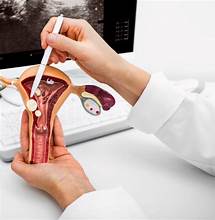Cervical cancer ranks as the second most common cancer affecting women worldwide, following breast cancer. This type of cancer, primarily affecting the cervix, is known as the cancer of the opening of the uterus. According to medical experts, factors such as weakened immunity, multiple sexual partners, poor genital hygiene, and early childbirth increase the risk of developing cervical cancer. Furthermore, lifestyle choices like smoking and excessive alcohol consumption also escalate the risk. The introduction of the HPV (Human Papillomavirus) vaccine has been a significant step in preventing cervical cancer. In India, there has been a noticeable increase in the number of cervical cancer cases. Early detection can significantly enhance the chances of successful treatment and survival.
The Right Age for HPV Vaccination
To prevent cervical cancer, it is essential to undergo regular screening tests. Girls as young as 9 should be examined by a gynecologist if they experience symptoms like abnormal bleeding or foul odor, which may indicate a genital infection, potentially leading to cancer if left untreated. The ideal age range for receiving the HPV vaccine is between 9 to 45 years. However, the most recommended age for vaccination is between 11 and 12 years. The vaccine is available in two forms: the quadrivalent vaccine, which protects against four strains of the virus, and the nonavalent vaccine, which covers nine strains. Girls under 15 require two doses of the vaccine, administered six months apart, while those aged 15 and older need three doses.
Essential Tests for Women
Excessive alcohol consumption and the use of birth control pills can also increase the risk of developing cervical cancer. Women are advised to undergo a Pap test every three years, an essential step in preventing cervical cancer. The Pap smear is a standard screening test for cervical cancer, recommended for all women and girls over the age of 21. Women over 30 are advised to have a Pap Duo test, which includes both a Pap smear and an HPV DNA test. Regular Pap smear screenings every three years are crucial in preventing cervical cancer, and increasing awareness about this is essential.
Vaccination Guidelines
The HPV vaccine is available to any girl or woman aged 9 to 45. However, the optimal time for vaccination is considered to be between 11 to 12 years. The vaccine is available as a quadrivalent vaccine, offering protection against four strains of the virus, and as a nonavalent vaccine, covering nine strains. Girls under 15 need two doses of the vaccine, administered with a six-month gap, while those aged 15 and older require three doses.
The Importance of Early Detection
Early detection of cervical cancer is vital. Regular health check-ups, awareness of the symptoms, and understanding the risk factors are crucial for early diagnosis and treatment. Women should be attentive to any changes in their menstrual cycle or any unusual symptoms and seek medical advice promptly.
Lifestyle Choices and Cervical Cancer Risk
Lifestyle choices significantly impact the risk of developing cervical cancer. Smoking and excessive alcohol consumption are known to increase this risk. Adopting a healthy lifestyle, including a balanced diet and regular exercise, can contribute to reducing the risk of cervical cancer.
The Role of HPV in Cervical Cancer
HPV is a major contributing factor in the development of cervical cancer. The virus is often transmitted through sexual contact, and most cases of cervical cancer are linked to HPV. The HPV vaccine plays a crucial role in preventing the infection and, consequently, reducing the risk of cervical cancer.




